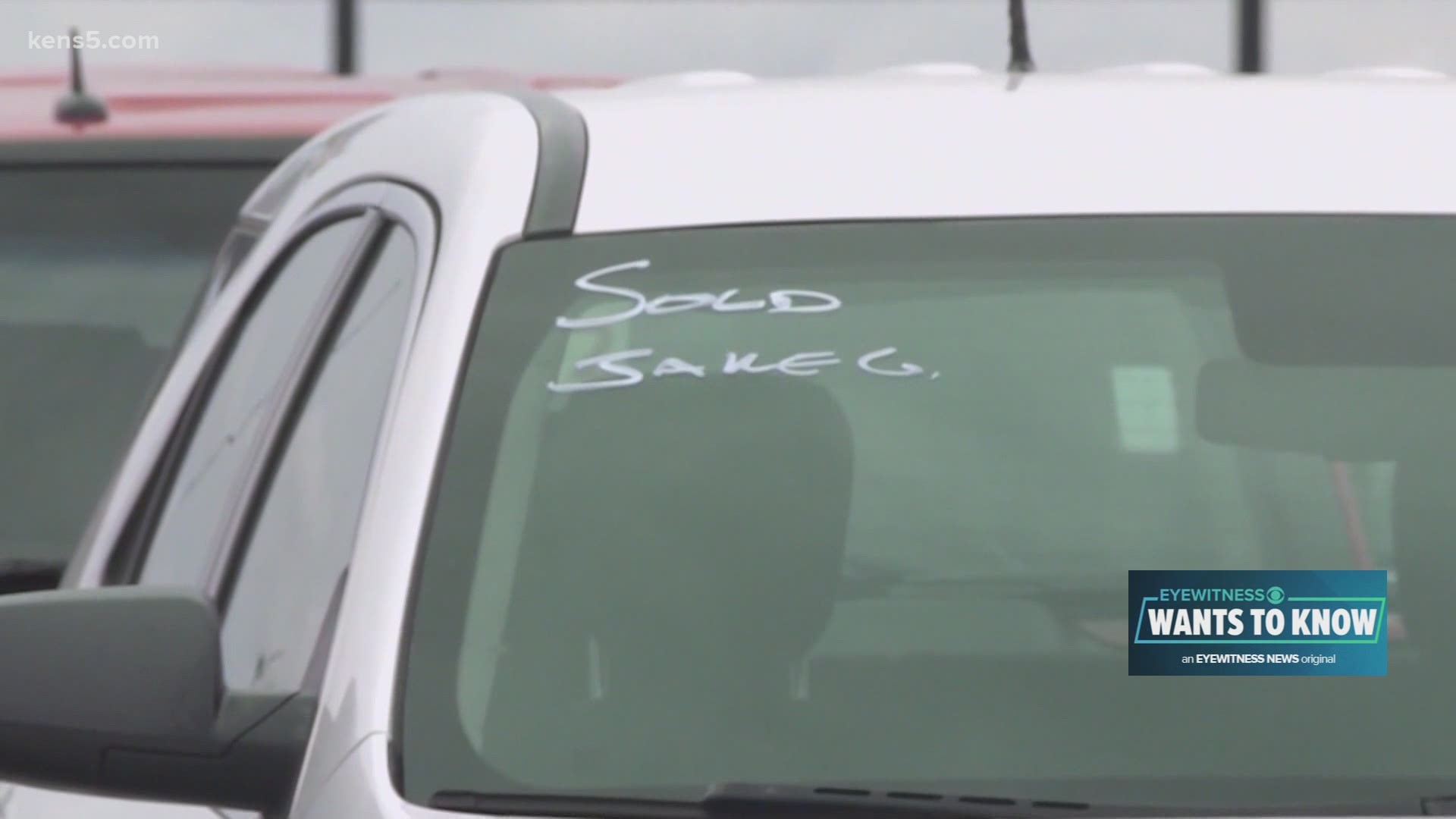SAN ANTONIO — Buying a car, either new or used, is a challenge right now. There is a shortage of parts for new cars, so you will have fewer options. That makes the used car market hot, so a good deal is hard to find, and limited supply makes finding a bargain on any car difficult.
“One of the shocking things that consumers are finding is that they can’t negotiate like they used to because the supply of vehicles has simply dried up,” said Jack Gillis, executive director of the Consumer Federation of America and author of “The Car Book.” “Dealers can charge sticker price and, in many cases, even more than sticker price.”
Put the brakes on buying, if you can.
“If you can wait, please do wait until after the first of year,” Gillis said.
Try this tip if you need wheels:
“Select a sedan instead of an SUV,” said Gillis. “If you can get away with a sedan, they aren’t as popular as SUVs and so they can be less expensive.”
Buying Used
Take time for three steps.
First, take a test drive. Then make time to do this:
“Take it for that independent inspection,” said Emilie Voss, of CarFax. “It costs about $100, but it could save you thousands of down the line because that inspector might see something that you or I might not.”
If a seller won't allow you to take the car for an independent inspection, that's a red flag.
“We would recommend walking away because it could mean that there are surprises in that vehicle that could cost you thousands down the line,” Voss said.
Finally, get the CarFax report see the vehicle’s history.
“That is the No. 1 thing that impacts the value,” said Voss. “Does it have an accident? That doesn’t necessarily mean it’s a bad buy. You just want to know about that accident because it impacts the value.”
Next, ask the seller of any used car to see the title.
“You should never engage with a seller that doesn’t have the title in hand,” said Grant Feek of Tred, a online person-to-person car marketplace. “If they don’t have the title, then it’s very easy to purchase a car that might be owned by their ex fiancée or stolen.”
If the title is not in their name, it means the vehicle is not theirs to sell and you will not be able to own the vehicle after you pay for it. Make sure you see the physical title and be sure it;s the seller’s actual name on it by comparing it to their license.
“You want to ask to see their license and verify that it is a real license and that they are the person in the photo, which sounds silly, but identity fraud is real,” Feek said.
Buying New
Don't hesitate to make a drive for a good deal and buy from a dealer 70 to 100 miles away if the price is right.
“You can always bring that car back for warranty work to local dealer,” Gillis said.
Skip the extras like floor mats, cargo containers, luggage racks and fabric treatments.
“You can save between 10 and 20% on the cost of vehicle,” said Gillis.
Purchase them later if you find out you need them.
Also, decline the extended warranty.
“The good news is today’s new car warranties that you get free are really quite good,” said Gillis. “Buying an extended service contract, which is one of the most profitable items that a dealer will sell you, is not a good value because if it were a good value, they wouldn’t be sold.”
Instead, Gillis recommends taking the amount of money would spend on a service contract and save it to put towards any needed car repairs.
Be wary of any 0% financing offers from dealerships. Very few people actually qualify for that low rate.
Get the best deal when selling your current car
Need to sell your current car before you buy? Here is how to get the highest price:
“Sell your used car yourself rather than trading it in,” Gillis said. “The used car market is very hot right now and you will get full retail price for that car where you’ll only get the wholesale price if you turn it in. That difference can help you get into that new car.”
And remember: When it comes to the traditional negotiation on a price, new or used, you probably won't have much leverage.

